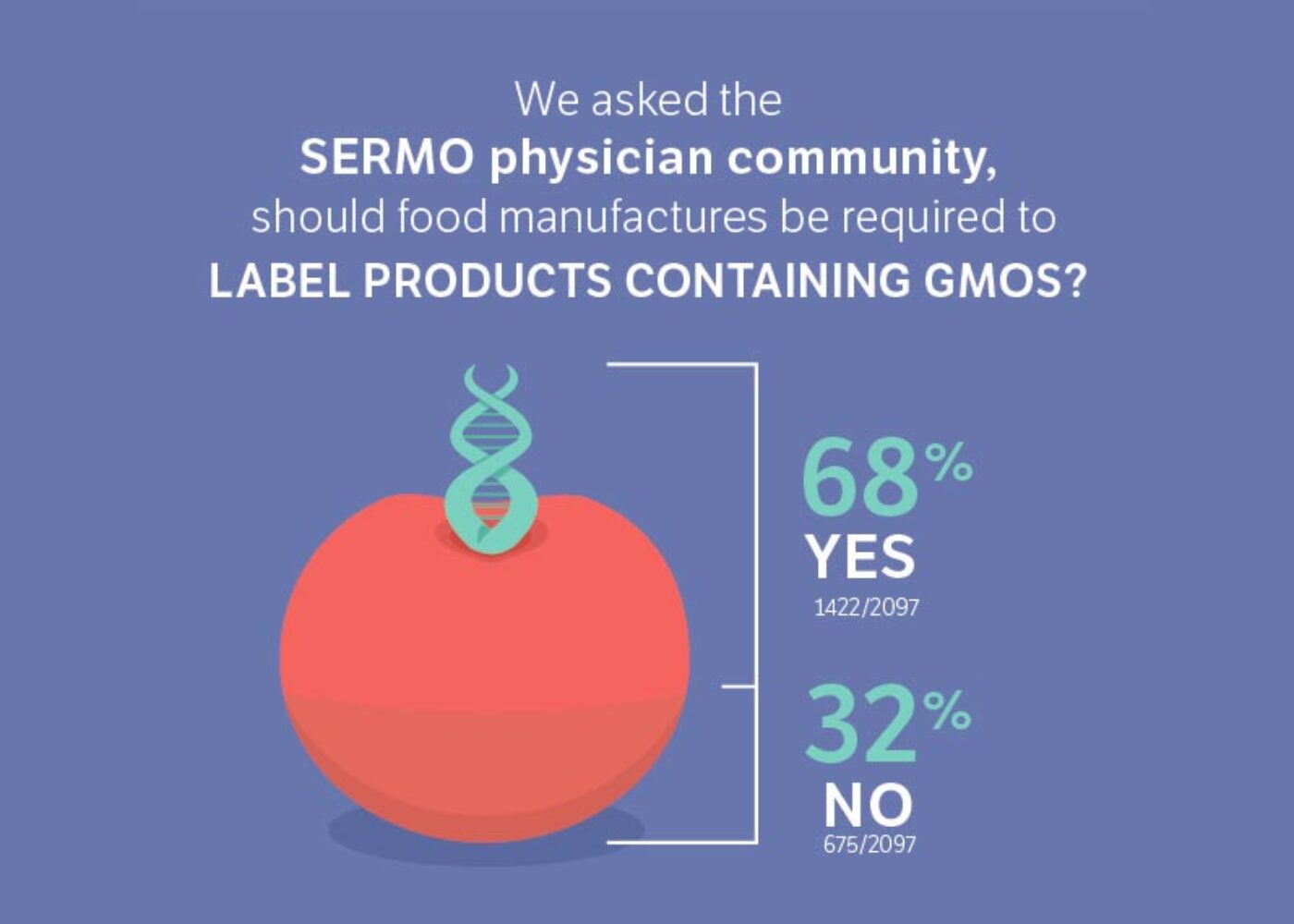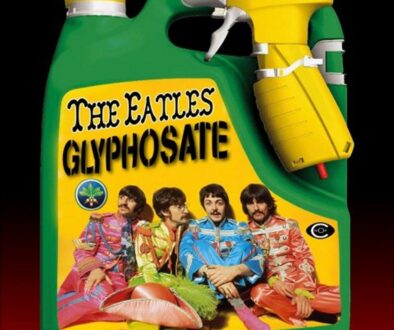A Majority of Doctors Favor GMO Labeling

SERMO, the online community of physicians, conducted a survey of its members on whether or not they favor GMO labeling. A significant majority, 68% do. So, not only do the majority of American’s favor labeling, but so do a majority of their doctors. There goes the Pro-GMO argument that people in favor of GMO Labeling are anti-science.
GMO (genetically modified organism) is a buzzword these days. The subject of food safety debates on health shows such as Dr. Oz , GMO foods are the latest food group to undergo public scrutiny. Detractors are so vocal, even major restaurant chains like Chipotle have marketed themselves as proponents of the non-GMO movement, although skepticism exists concerning their level of commitment to the GMO-free cause.
There is a wealth of knowledge out there about GMOs; this is part one of a three part series. Today we will be focusing on the controversial debate of GMO labeling.
Genetically engineered crop producers took another hit this year when the World Health Organization reported that organophosphate herbicides such as glyphosate are “probable carcinogens,” with limited evidence showing an increased risk of non-Hodgkin lymphoma in occupational workers, and sufficient evidence of carcinogenicity in mammals. The finding comes on the heels of renewed calls to update GMO regulations at the federal level and mandate that all GMO foods be labeled in stores. (Guyton, 2015)
The case for labeling—The power of regulation
In 2003, when trans fats were linked to low density lipoproteins (LDLs) and an increased risk of cardiovascular disease, regulatory groups had to respond. The FDA and USDA changed their policies so that all food labels now distinguish trans fats from saturated fats. In Europe, many countries all but banned them. The regulation changes forced processed food manufacturers to use healthier ingredients, regardless of higher cost considerations. A consumer cultural shift followed suit and everyone paid more attention to food content.
The message was clear—when regulatory groups call out unhealthy additives, manufacturers fall in line and work to protect consumer health; the CDC predicted that avoiding trans fats would help prevent approximately 7,000 heart disease-related deaths and 20,000 heart attacks per year (5).
A genetically modified quandary
What about our plant crops? Genetically modified crops are plants used in agriculture, the DNA of which has been manipulated using genetic engineering techniques. First cultivated in the 1990s by biotech giants like Monsanto, GMOs are grown in twenty eight countries and planted on eleven percent of the world’s arable land, including half of the cropland in the U.S. (14)
Americans have been eating GM products for nearly two decades. About ninety percent of corn, cotton, and soybeans grown in the U.S. are genetically modified (14). According to the 2012 Yearbook from the Food and Agricultural Organization of the United Nations (FAO), Argentina, Brazil, China and India are the largest developing-country producers of transgenic crops. In addition to human consumption, GM crops are used for animal feed and biofuel.
Yet, after two decades of cultivation and consumption, GMO plant safety is still called into question, even as more countries sign up for their cultivation and sale.
This past April, SERMO polled physicians to gain insight on how important GMO labeling may be to the medical world by asking “Should food manufacturers be required to label products containing GMOs? Of 2,097 physician answers, 68% selected yes and 32% selected no.
Of the top eleven states polled, New York, California and Florida were the top three in favor of required labeling.
The GMO labeling controversy is a political and ethical battleground with implications for the economy, environment, public health and the future of agricultural practices globally. Physicians participating in SERMO’s online thread expressed opinions on opposite ends of the spectrum, mirroring the viewpoints of countries and regulatory bodies around the globe.
A hematology oncologist in support of labeling stated, “GMOs must be labeled there is no proof that they are safe or not at this time, but there is non conclusive evidence that they could be harmful (a reasonable doubt about GMOs safety) so people want the right to choose and know (labels).”
In contrast, an orthopaedic surgeon added, “The problem with a label is what it really means, how it is interpreted, and what actions are taken about it. There is some peril with labeling GMO foods with downstream consequences that could affect the cost and availability of food for those with or without money. Do you want poor people to eat GMO food or no food? Which is more unhealthy? “
Top eleven polled states
State No Yes Grand Total Percentage in favor NY 61 170 231 73.59% CA* 73 149 222 67.12% FL 39 103 142 72.54% PA 30 88 118 74.58% TX* 35 74 109 67.89% NJ 25 72 97 74.23% IL* 31 59 90 65.56% MI 13 51 64 79.69% NC* 24 39 63 61.90% OH 15 46 61 75.41% *In 2013, the top ten agricultural producing states, in terms of cash receipts were (in descending order): California, Iowa, Nebraska, Minnesota, Texas, Illinois, Kansas, North Carolina, Wisconsin, and Indiana.
GMO futures are currently in flux, even as they gobble up a greater share of the market.
What is your opinion on GMO labeling? If you’re a physician, join your peers in this discussion. The next post will be focusing on the potential benefits to GMO labeling.





